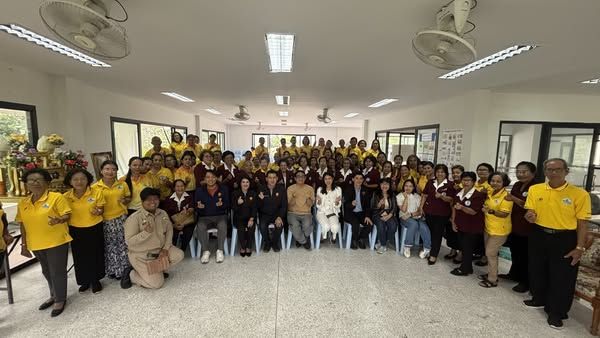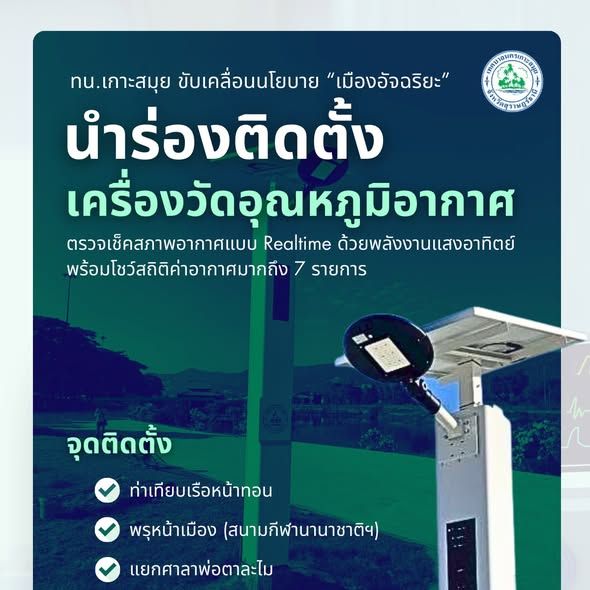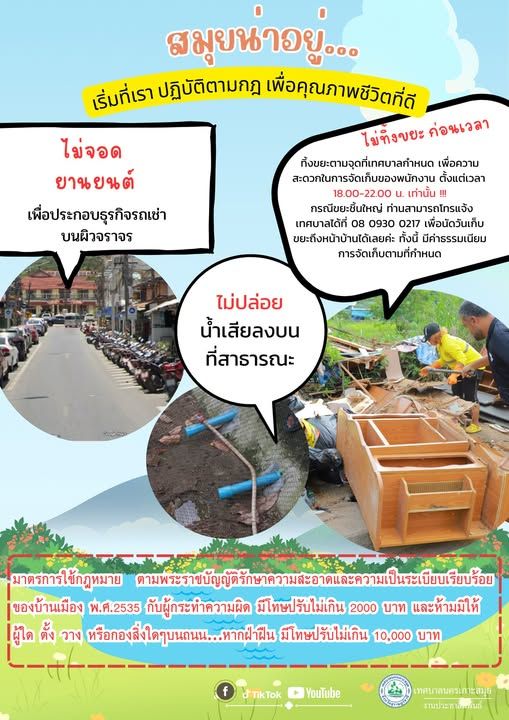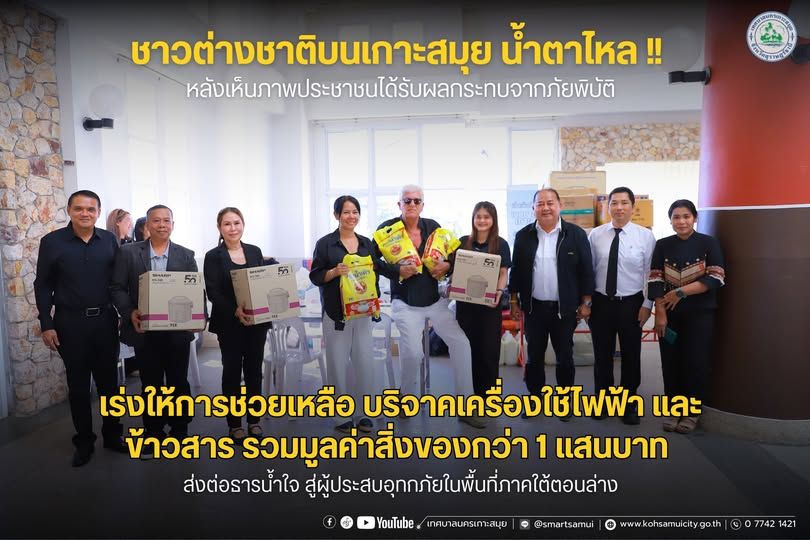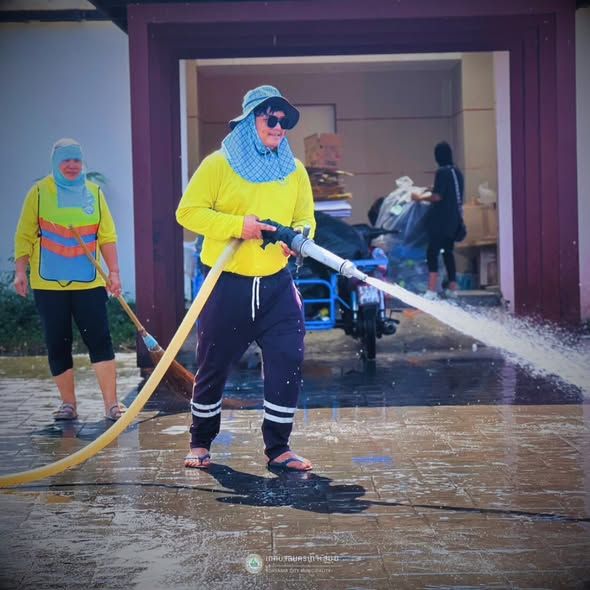Here’s a concise two-sentence summary with hashtags:
Koh Samui Municipality welcomed a progressive delegation from Thailand’s House of Representatives, led by Deputy Chair Mr. Tunyawat Kamonwongwat, to explore innovative urban strategies for inclusive community development. The visit underscored Koh Samui’s commitment to creating accessible spaces that cater to diverse needs, from elderly welfare to disability support.
KohSamui #ThailandTravel #SustainableUrbanDevelopment #InclusiveCities #ResponsibleTourism #CommunityWelfare #UrbanInnovation #SocialProgress #TravelThailand #KohSamuiLife
Committee Delegation Arrives in Koh Samui
On March 31, 2025, Koh Samui Municipality welcomed a distinguished delegation from the House of Representatives’ Committee on Children, Youth, Women, the Elderly, Persons with Disabilities, Ethnic Groups, and Gender Diversity. The delegation, led by Deputy Chair Mr. Tunyawat Kamonwongwat, was received by Mrs. Benyanich Wiangweera, Director of the Social Welfare Division, alongside key municipal officials at the Prakarang Meeting Room of the municipality office.
Purpose and Agenda of the Visit
The central aim of the delegation’s visit was to gain insights into Koh Samui’s urban management strategies designed to accommodate and serve people of all ages, genders, and backgrounds. The meeting comprised a detailed briefing on the city’s approaches to:
- Urban planning with inclusivity in mind
- Public service provision for diverse population needs
- The social welfare system’s support mechanisms for various demographic groups
The session provided an opportunity for both parties to exchange ideas and discuss practical challenges and successes related to creating a more inclusive urban environment.
Emphasis on Inclusivity in Urban Development
Koh Samui Municipality has prioritized inclusive urban development by integrating universal design principles and accessible infrastructure within public spaces. The municipal approach emphasizes:
- Barrier-free facilities for persons with disabilities
- Gender-responsive urban policies
- Accessible public transportation
- Community programs that cater to multiple age groups, including youth and the elderly
This strategic focus aligns with Thailand’s broader commitment to sustainable and equitable urban growth, as outlined in national development plans and international frameworks such as the United Nations Sustainable Development Goals (SDGs).
Visit to the Elderly Welfare Center
In the afternoon, the delegation visited the Elderly Welfare Center of Koh Samui District. They were welcomed by Ms. Pornthip Chanphong, President of the Elderly Organization, along with executive committee members, organization participants, and staff from the Social Welfare Division.
This center serves as a community hub offering services and programs to enhance the wellbeing of the elderly, including:
- Health and wellness activities
- Skill development workshops
- Social support networks
- Access to municipal and national welfare benefits
This visit provided the delegation with opportunities to observe existing programs, engage in dialogue with elderly community members, and discuss practical measures for further enhancing quality of life and promoting self-sufficiency among older adults.
Fostering Stakeholder Engagement and Learning
A key component of the day’s agenda was facilitating an environment for learning and mutual exchange. Municipal representatives, committee members, and local citizens discussed:
- Best practices in community-based social support
- Identifying and addressing gaps in services
- Collaborative solutions for inclusive policy implementation
The inclusion of representatives from diverse demographic groups allowed for a broad perspective on the municipality’s social welfare strategies, ensuring that future planning remains responsive to the needs of all residents.
Broader Implications for Social Welfare Policy
The activities in Koh Samui reflect a national movement in Thailand toward participatory governance and evidence-based social welfare policies. By engaging parliamentary committees with local governments and community groups, the process strengthens:
- Policy effectiveness through ground-level insights
- Community trust in public institutions
- Sustainable improvements in social equity and quality of life
Koh Samui’s ongoing initiatives serve as a model for other municipalities aiming to create accessible, supportive, and empowering urban environments for every segment of society.
Frequently Asked Questions
FAQ: Koh Samui Municipality’s Inclusive Urban Management Initiative
What was the main purpose of the House Committee delegation’s visit to Koh Samui Municipality?
The delegation, led by Deputy Chair Mr. Tunyawat Kamonwongwat, visited Koh Samui to learn about the city’s innovative urban management strategies focused on inclusivity. Their agenda included understanding how the municipality designs public spaces, services, and welfare programs to support people of all ages, genders, and abilities, with an emphasis on barrier-free infrastructure and accessible community programs.
How is Koh Samui Municipality promoting inclusive urban development for diverse groups?
Koh Samui Municipality prioritizes inclusive urban development by integrating universal design and ensuring accessibility in public infrastructure and transportation. This includes implementing barrier-free facilities for persons with disabilities, gender-responsive urban policies, and community initiatives that support youth, the elderly, and other marginalized groups, aligning with both national goals and the United Nations SDGs.
What role does stakeholder engagement play in Koh Samui’s social welfare efforts?
Stakeholder engagement is central to Koh Samui’s approach, as the municipality regularly facilitates dialogue between representatives, community members, and parliamentary committees to exchange ideas and address service gaps. This collaborative process helps refine policies, strengthens trust in public institutions, and ensures that urban planning and social welfare initiatives remain responsive to the needs of all residents.
